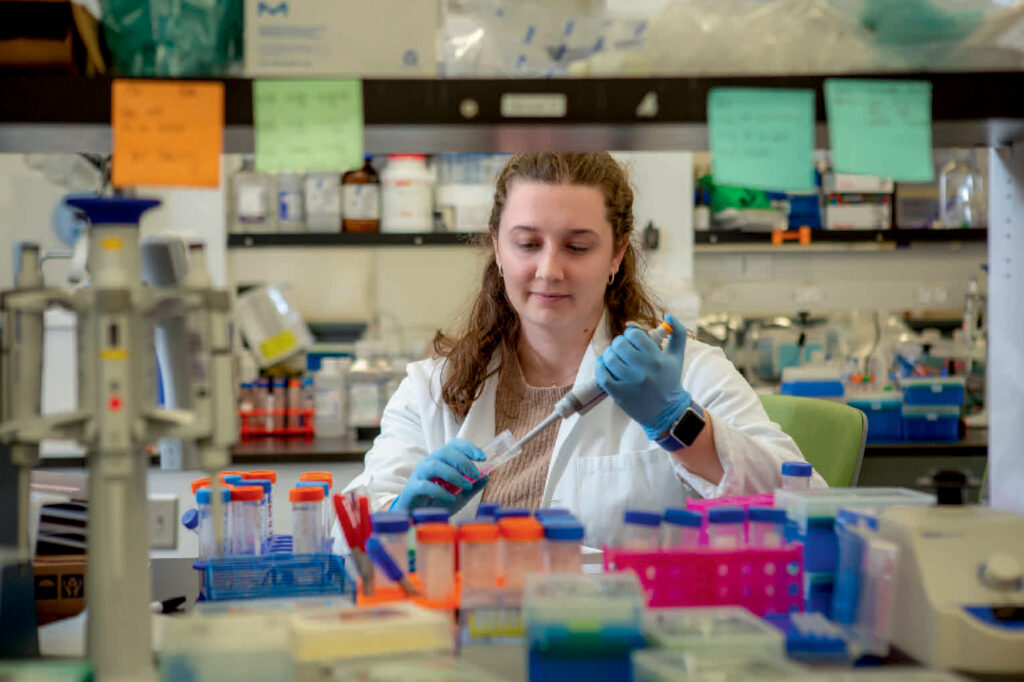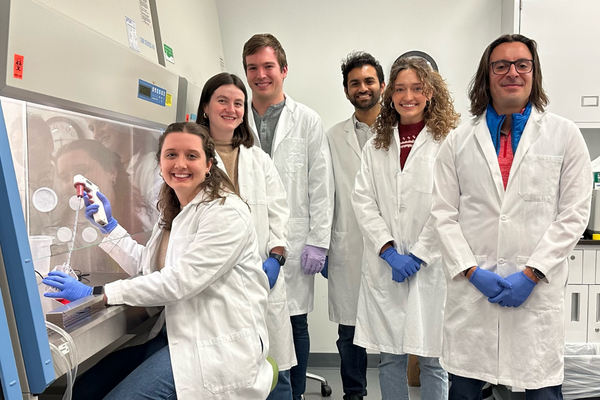Precision medicine. Women’s health. RNA therapeutics. Kelsey Swingle’s next chapter advances science that can’t wait.
On July 1, Kelsey Swingle, Ph.D., officially joined Rice University as an Assistant Professor in Bioengineering, a remarkable leap directly from doctoral training to a tenure track faculty position. She’s not just launching a lab, she’s continuing a mission shaped at the University of Pennsylvania’s Center for Precision Engineering for Health (CPE4H).

At CPE4H Swingle’s research pioneered new ways to deliver mRNA therapeutics using lipid nanoparticles, with applications that go as far as treating deadly pregnancy complications like pre-eclampsia.
“Kelsey’s unique application is to use these technologies to treat specific diseases, such as to target the placenta during pregnancy,” said Daniel A. Hammer, Inaugural Director of CPE4H. “Her work is a wonderful combination of precise molecular delivery applied to a real problem in human health.”
In a world where reproductive health remains chronically underfunded and underserved, Swingle’s research targets a profound gap. Her innovations hold promise for early intervention in pregnancy disorders, pushing the boundaries of what medicine can treat and when.
Kelsey was trained in Michael Mitchell’s lab at Penn Bioengineering.
“Mike has continuously guided and supported me, and gave me the unique opportunity to launch a new research area in the Mitchell Lab focused on women’s health,” Swingle said.
But her impact extended far beyond science. Swingle played a pivotal role in Penn’s translational research community, through platforms like the CPE4H Focus Friday seminars and cross-lab collaboration in the UCity space, environments designed to accelerate innovation at the intersection of engineering and medicine.
“I’ve found that one of the biggest challenges during graduate school is the opportunity to wear multiple hats—as a student, researcher, scientist, mentee, mentor, friend, and role model—which can feel really overwhelming and daunting, especially in the beginning. I clearly remember sharing these feelings with Mike during the second year of my Ph.D., and he encouraged me to focus on executing good science and being a team player, and to have confidence everything else would work itself out,” Swigle shared. “Now that I’ve accepted a faculty position, everything has worked out even better than I could have anticipated.”
“Kelsey is the complete scholar. She is extremely hard working and creative in her research, and is always looking for new areas to grow and challenge herself. But she is also an incredible teacher and mentor of the next generation. It is rare to start an independent faculty position right after completing a PhD, but Kelsey is absolutely ready for it and will hit the ground running,” observed Michael Mitchell, Associate Professor for Penn Bioengineering.

Now, at Rice, Swingle will launch the Swingle Lab, carrying forward a research agenda that sits at the interface of biomaterials, immune engineering, and reproductive biology. The stakes? Future therapies for complex and under-treated conditions — with global impact.
“I’m a big believer that cutting-edge research takes a team of great people that are eager to work together,” Swingle said. “I’m excited to explore opportunities to collaborate and learn from everyone in Rice Bioengineering and the broader scientific community at the Texas Medical Center in Houston.”
For Penn, Swingle’s story reaffirms its mission to train the next generation of engineers not only to innovate, but to lead.
“Because Kelsey will, in turn, train students and postdoctoral associates in her own laboratory, her career has an important, multiplicative effect on the influence of the center broadly across the scientific community,” Hammer emphasized.
“Kelsey has done an incredible job here at Penn Bioengineering, CPE4H, and the Mitchell Lab. I’m very hopeful that her faculty position at top-10 ranked Rice Bioengineering will enable her to make important contributions to the fields of drug delivery and women’s health, ” shared Mitchell.
Kelsey Swingle is more than a rising star. She’s a catalyst, proving what happens when the right minds are given the creative freedom, mentorship, and mission to engineer a more equitable and personalized future for healthcare.
